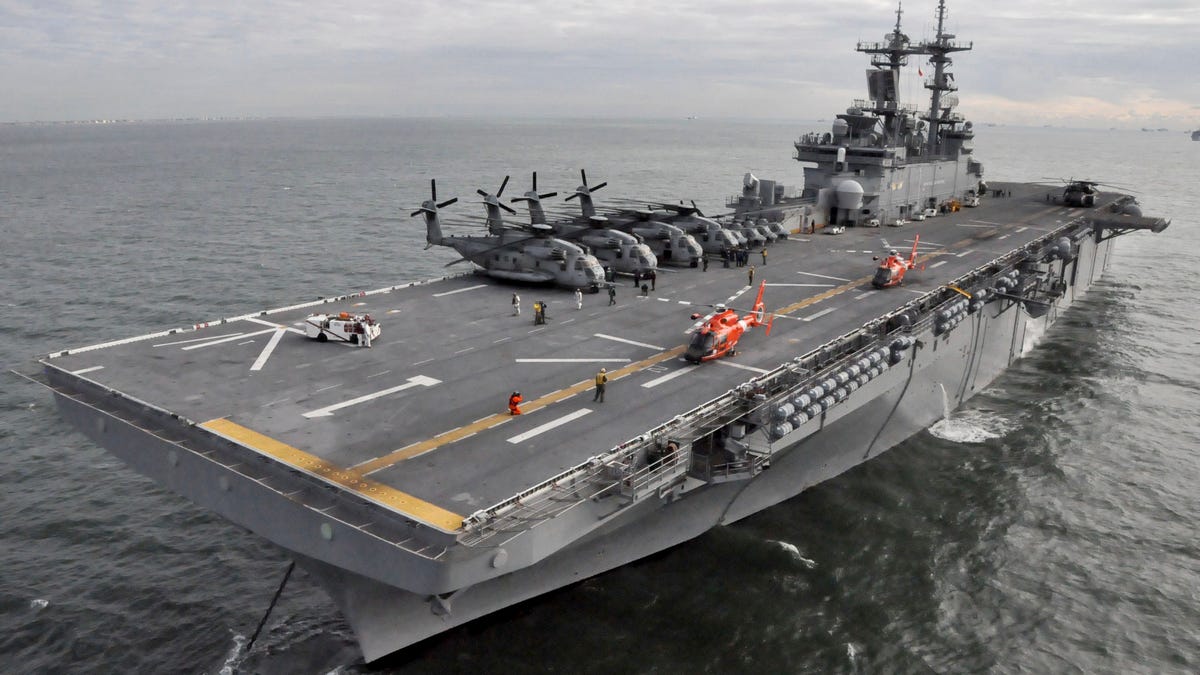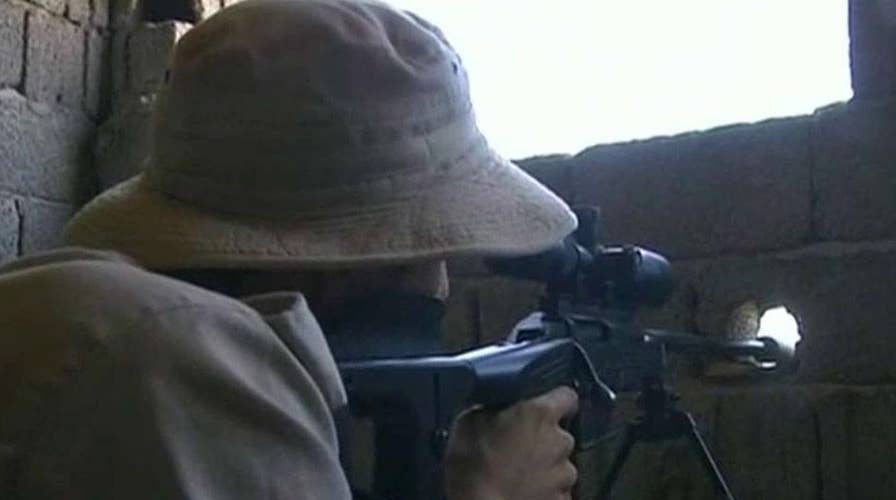President Obama has authorized a 30-day mission for the U.S. military to conduct airstrikes against the Islamic State terror group in Libya as new strikes were unleashed Tuesday, Fox News has learned.
Marine Corps Harrier jets launched from the Navy amphibious assault ship USS Wasp conducted at least two airstrikes against ISIS targets in the coastal city of Sirte Tuesday. USS Wasp is set to remain off the Libyan coast in the Mediterranean Sea for the next month along with an escort ship, the guided-missile destroyer USS Carney.
The U.S. has launched at least seven airstrikes in total since the campaign began Monday.

USS Wasp in 2012. (REUTERS/U.S. Navy/Terah L. Mollise/Handout)
Speaking at the White House Tuesday, Obama explained, “At the request of [the Libyan] government, after they had already made significant progress against ISIL and had essentially pushed ISIL into a very confined area in and around Sirte, it is in America's national security interests in our fight against ISIL to make sure that they're able to finish the job.”
“This is a finite period of time and a very finite mission,” Pentagon spokesman Capt. Jeff Davis told reporters. “We don’t envision this as being something that’s going to be too long” in duration, he added.
Tuesday's strikes destroyed an ISIS rocket launcher and a heavy equipment excavator, Davis said. He added that three Harrier jets and two unmanned Reaper drones conducted yesterday's strikes, destroying two Soviet-era ISIS T-72 tanks, two other vehicles and an ISIS “fighting position.”
While President Obama’s authorization to strike ISIS in Libya was limited to Sirte, Capt. Davis said the U.S. military reserved the right to conduct counterterrorism strikes elsewhere in the country as the U.S. military did in November and February.
Pentagon Press Secretary Peter Cook said Monday the number of
ISIS fighters in Sirte was under 1,000. When asked by Fox News how the number of ISIS fighters had decreased so rapidly in Libya, Davis said it was a combination of factors.
Some had been killed and others had “changed allegiances” he said. “They have decided ISIS was not all that it was cracked up to be and have moved on to something else.”
In February, the U.S. military began flying armed drones over Libya from Sigonella, Italy, on the island of Sicily. Fox News is told the drones used in Monday's ISIS strikes did not originate from Sicily, but likely from a drone base in Africa.
USS Wasp is the flagship of a flotilla of Navy ships carrying thousands of U.S. Marines, part of the 22nd Marine Expeditionary Unit based out of Camp Lejeune, North Carolina. They are expected to move from the Mediterranean to the Persian Gulf eventually.
Aboard USS Wasp are Marine Cobra attack helicopters, Harrier jets and CH-53 transport helicopters to take Marines ashore should they be needed.
Italy's foreign minister said Tuesday his government would evaluate any U.S. request to allow use of the Sigonella base in the airstrike campaign.
“I believe that it's a very positive fact” that the Americans have decided to intervene, Paolo Gentiloni said. He noted that the extremists were concentrated in four or five compounds, but said it won't be easy to eradicate them.
In February, Italy agreed to let armed U.S. drones take off from Sigonella but only to defend U.S. forces targeting ISIS extremists. Italy has stressed that it won't let Sigonella be used for offensive purposes.
Italy has insisted Libya must request any anti-ISIS airstrikes, which Libya's U.N.-brokered unity government did in the case of Sirte.
The strikes send a “very strong message not only against terrorism, but also for the stabilization of Libya,” Gentiloni said. He added that "90 percent of migrants in Italy come from Libya, and this is the reason why we are so keen on its stabilization."
Libya slid into chaos after the ouster and killing of longtime strongman Col. Moammar Qaddafi in 2011.
Its long coastline on the Mediterranean's southern shore serves as a base for smuggling operations that have launched boats with hundreds of thousands of refugees toward Italy over the last few years. The Libyan coast is more than 300 miles from southern Italy.
Fox News' Lucas Tomlinson and The Associated Press contributed to this report.









































